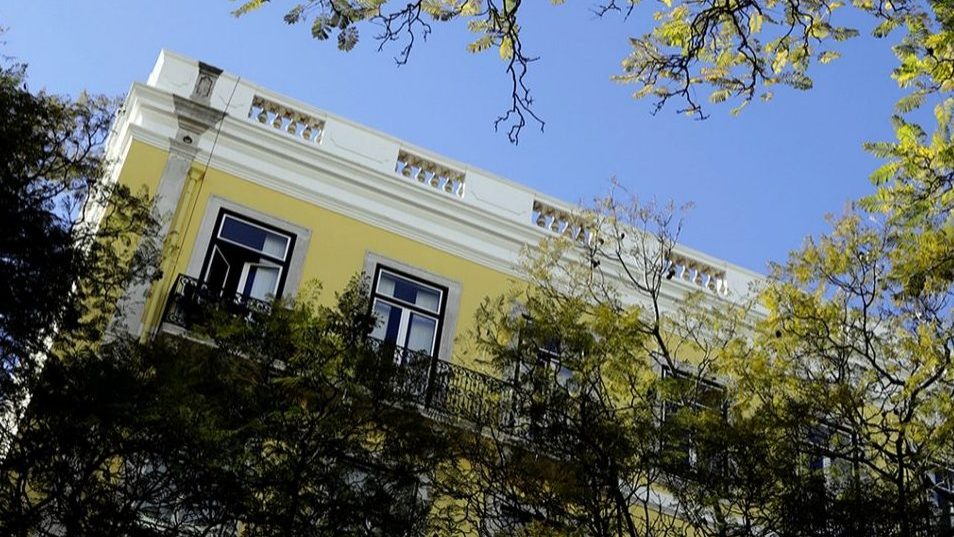Cutting red tape, fast-tracking visas and promoting Portugal as a global innovation hub are the suggestions from entrepreneurs, incubators and funds to boost talent attraction.
A $100,000 barrier for visas for specialised foreign workers in the United States could be a “strategic window” to attract qualified talent to Portugal or put professionals in the country on the remote recruitment route of international technology companies. But for this window not to be a closed door, entrepreneurs argue that bureaucracy must be cut, visas accelerated and reception policies strengthened.
After additional customs tariffs, Donald Trump has erected a new wall to entry into US territory: he has increased H-1B visas to $100,000. Intended for skilled workers with higher education, typically in areas such as Information Technology, Engineering, Mathematics, Finance or Medicine, these visas are widely used by US technology companies to attract international talent. In 2024 alone, the US Immigration and Citizenship Services approved 399,395 H-1B visas, of which 141,205 were for new jobs and 258,190 were renewals or extensions.
Talent tax: an opportunity for Europe and Portugal
“The United States’ strategy is so disruptive that Europe should take advantage of it, not only in attracting talent, as it remains one of the most interesting places to live. Here in Portugal, we continue to welcome people with interesting profiles, who are wealthy and want to come and live and work in Portugal. Now, sometimes, we get very mixed messages, we don’t make it easy to attract talent”, pointed out the president of Investors Portugal, Lurdes Gramaxo, in a recent interview with ECO.
The president of Investors Portugal is not alone in this assessment. “This decision has a direct impact on the global mobility of highly specialised talent. By making access to the US less viable, it inevitably opens up space for other countries to position themselves as attractive alternatives. In a world where innovation and competitiveness depend on the ability to attract and retain the best, this measure represents an opportunity for emerging talent markets, such as Portugal”, says Miguel Santo Amaro, founder and CEO of Coverflex, a fintech company with a presence in Portugal, Italy and Spain.
Márcia Pereira describes this decision by the Trump administration as “deeply negative”. ‘Whoever conceived this measure seems to misunderstand the cultural and diverse reality that underpins the American business ecosystem, particularly the technology sector, which dominates the NASDAQ index”, says the Bandora CEO.
The founder of the national start-up, which has plans to expand into the United States and open a branch in the country, explains why: “Technology companies have historically relied on highly skilled foreign talent because they recognise that innovation and disruptive thinking emerge from diverse, multicultural teams with different experiences. This need to recruit will not disappear, as there is also a shortage of supply; it will only change the way it is done. Many companies will choose to hire directly in the countries of origin, remotely, or even to create innovation hubs and competence centres outside the US.”
A decision that, in the entrepreneur’s view, will result in “greater capital outflow, lower domestic consumption and loss of tax revenue on consumption”, she points out. In addition, “for companies that wanted to open branches and transfer employees to the US, the measure runs counter to the initial objective: to form American teams locally, but now with foreign know-how”, she points out.
A brake on talent mobility across the Atlantic, but could this be an opportunity for Portugal? “I don’t think this particular problem is a big benefit for Portugal. Portugal can attract people because of the quality of talent, the cost of living, and the beautiful and peaceful country we have. Those who would go to the US are not going to suddenly start coming to Portugal. We should focus on our advantages”, says Humberto Ayres Pereira, co-founder of Rows.
Gil Azevedo has a different view. “One of the consequences will be the relocation of some international talent to other countries. In this sense, for Europe and for Portugal, this decision is an opportunity to attract innovation hubs from large companies with qualified talent to the country”, argues the executive director of Unicorn Factory Lisboa.
Vítor Ferreira agrees. For the director-general of Startup Leiria, this tax on importing talent not only fails to solve the talent shortage in the United States, but also has the “most likely effect” of “accelerating offshoring and remote working, with teams being set up outside the US”. “In a global game that rewards open ecosystems, this is a sign of closure with real costs for innovation”, he says.
For Portugal, this is a clear opportunity on two fronts. “Portugal as a remote-first base for those working from here for American companies — many professionals already do this, and this measure pushes more demand in that direction”, he says. But also for national companies, “it’s time to open the funnel”, he argues. In other words, “to seek out talent from Brazil, India and other markets, either remotely or through relocation when it makes sense”.
“Portugal — and other European countries — should view this change as an opportunity. There are already outsourcing and shared services companies that will benefit, offering solutions that circumvent some of the bureaucracy and labour rigidity”, points out Márcia Pereira. “The cost factor is highly competitive: on average, hiring a qualified professional in Portugal costs a third of the equivalent in the United States. This puts us in an attractive position, both for foreign talent and for multinationals looking for new destinations for their operations centres”, says the CEO of Bandora.
“With the cost of H-1B visas skyrocketing, skilled professionals from countries such as India, China, or even Eastern Europe, who once dreamed of the ‘American dream’, will look to European alternatives. Portugal has already attracted more than 10,000 digital nomads since 2020 through the D8 visa, and hubs such as Lisbon and Porto are becoming startup centres. Imagine: a software developer from Brazil, tired of waiting for an expensive visa in the US, choosing Lisbon for its golden visa or attractive tax regime for non-residents (NHR)”, reflects Miguel Alves Ribeiro.
The co-founder and CEO of sheerME is enthusiastic about this idea. “We have already hired international talent to boost our bookings and digital wallet app, and we see the potential: this influx could accelerate the growth of our wellness tech sector, which needs skills in data analytics and machine learning to personalise user experiences. If well managed, this “exodus” from the US could inject billions into the Portuguese economy, fostering innovation and local employment”, he says.
Tackling bureaucracy, creating conditions for attractiveness
But the key issue is “well managed”. The potential to attract this specialised talent could be diminished if the country does not tackle bureaucracy and visa delays, which have an impact on businesses.
“In my experience, recruiting foreign talent for sheerME involves not only lengthy tax approvals, but also a lack of clarity on incentives such as subsidised housing or language support”, describes Miguel Alves Ribeiro. “Without a more agile attraction strategy inspired, for example, by the Estonian e-residency model, we run the risk of seeing these professionals opt for Ireland or the Netherlands, where processes are digital and fast. It’s frustrating: Portugal has the soft power (quality of life, Atlantic coast, affordable cost), but fails in bureaucratic hard power”, he laments.
The result? “In the last quarter, we lost two hires to Ireland due to visa delays. It’s a sign: without action, Portugal risks being a “transit hub” rather than a final destination. But with vision, we can reverse this”, says the co-founder of wellness tech, which operates in Portugal and Brazil.
To be a real opportunity, a “bold and pragmatic approach” must be adopted, recommends Márcia Pereira. “It is essential to simplify administrative visa processes and create competitive tax regimes that make the country attractive to qualified professionals. At the same time, it is important to strengthen the promotion of the Portugal brand, not only as a tourist destination, but as a global technology hub, with competitive costs and quality of life”, suggests the CEO of Bandora.
“Portugal can attract American resources that make the reverse journey and establish themselves here, provided that there are tax conditions that encourage the transfer of knowledge and capital. By combining these factors, we would transform a barrier in the US into a strategic opportunity for Portugal”, says the entrepreneur.
“Companies analyse various markets and choose the location of their hubs where conditions are competitive and processes are efficient. If we want to create and attract high added-value centres in Portugal, we must ensure this competitiveness. Only in this way can Portugal benefit from this situation and attract highly skilled jobs and also retain our young talent”, points out Gil Azevedo.
How? A fast track for visas, simplification of processes, “creating competitive conditions, evolving the “start-up law” into the “innovation law” as a way of attracting and retaining companies that invest in innovation and create jobs in Portugal”, and promoting the Portugal brand as a global innovation centre are the proposals of the executive director of Unicorn Factory Lisboa.
Portugal already has policies in place to attract talent, with the HQV – D3 visa and IFICI+, a tax regime that offers a fixed rate of 20% income tax for professionals in the fields of science, innovation and research and development (R&D), lists Catarina Almeida Garrett, co-founder of AGPC, an organisation that helps talent and companies enter Portugal.
But more could be done. Starting with analysing the strategies of other countries, such as Germany, which has the European Blue Card — “issued through a fast-track process and with support for family integration, in contrast to the national scenario, where making an appointment can take between six and eight months” —; Estonia — which launched a “visa for digital nomads with easy access to public services and simplified taxation, whereas in Portugal, although there is a similar visa, taxation is no longer simplified” — or Ireland, which has promoted “partnerships between multinationals and universities to attract foreign graduates, while in Portugal the opposite phenomenon is still widespread, with many qualified young people emigrating”, explains Catarina Almeida Garrett.
For Lurdes Gramaxo, Portugal must decisively tackle the delays and bureaucracy surrounding visas. “When a regularisation process in Portugal sometimes takes two or three years… There are other countries in Europe offering better conditions, such as Spain and Greece, which have very interesting programmes for attracting foreign talent and golden visas”, she warns.
“In relation to the United States, we are the leading country in Europe and probably considered one of the safest too. We are friendly, generally welcoming, and have a good climate. Everything makes it easier, but if they come here, it takes three years to regularise their situation, they encounter difficulties and all kinds of bureaucratic obstacles. In short, there are other better places, aren’t there?”, says the president of Investors Portugal.
Miguel Santo Amaro is optimistic. “We have conditions that many professionals are looking for: quality of life, security, stability, an open culture and a rapidly growing technological ecosystem. It is true that bureaucracy has been an obstacle in the past, but it is also true that this new government has taken on the fight against bureaucracy as its banner, with the Deputy Minister and Minister for State Reform, Gonçalo Saraiva Matias, leading this commitment”, he says.
“This gives us clear signs that the country is attentive and ready to accelerate. The time is now: if Portugal knows how to simplify processes and communicate this change effectively, we can attract highly specialised talent that is already looking for alternatives outside the US”, believes the CEO of Coverflex.
“Portugal must seize this opportunity with a strategic vision. Speeding up specialised visa processes and simplifying tax and labour integration are fundamental steps. But it is equally important to strengthen reception policies — from housing programmes to support for family integration — and communicate to the world that Portugal wants to be a global hub for talent”, he adds.
“The new international context works in our favour: if we know how to align political discourse with concrete measures, we have everything we need to transform the country into a destination of choice for highly qualified professionals and the companies that want to accompany them.”




